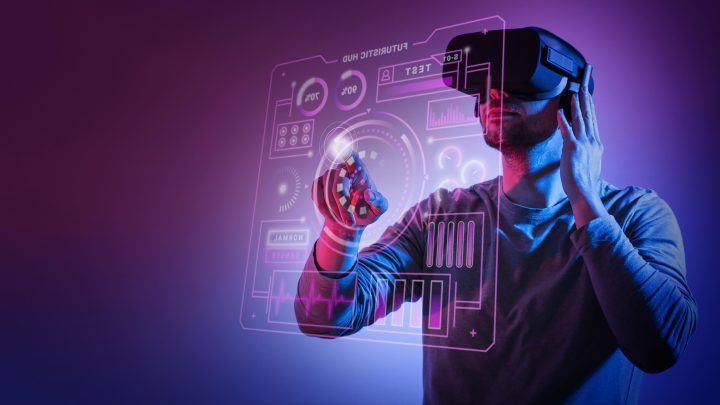Navigating the Digital Technology Landscape in 2024: Key Trends and Innovations
Digital technology continues to evolve at a breakneck pace, reshaping industries, enhancing connectivity, and driving innovation. As we delve into 2024, several key trends and innovations stand out, offering a glimpse into the future of our digital world. Here’s a comprehensive look at the current digital technology scenario and its transformative impact. 1. 5G and Beyond: The Future of Connectivity The rollout of 5G technology has been a game-changer, offering unprecedented speeds, lower latency, and enhanced connectivity. In 2024, we are witnessing the expansion of 5G networks globally, enabling new applications in IoT, smart cities, and autonomous vehicles. Moreover, research into 6G technology is already underway, promising even greater bandwidth and more sophisticated connectivity solutions. 2. Artificial Intelligence and Machine Learning: Smarter Solutions AI and machine learning continue to advance, driving innovation across various sectors. From predictive analytics in healthcare to personalized marketing strategies in retail, AI is becoming an integral part of business operations. In 2024, AI-powered solutions are becoming more accessible to small and medium-sized enterprises, democratizing the benefits of advanced analytics and automation. 3. Cybersecurity: Strengthening Digital Defenses With the increasing reliance on digital technology, cybersecurity has never been more critical. The rise in cyber threats, including ransomware attacks and data breaches, has prompted businesses to invest heavily in robust cybersecurity measures. Innovations in AI and machine learning are enhancing threat detection and response capabilities, providing more proactive and adaptive security solutions. 4. Blockchain and Decentralized Finance (DeFi) Blockchain technology continues to gain traction beyond cryptocurrencies. Its applications in supply chain management, digital identity verification, and smart contracts are revolutionizing traditional processes. Decentralized finance (DeFi) is also emerging as a significant trend, offering alternative financial services that are more accessible, transparent, and efficient. 5. The Internet of Things (IoT): Connected Everything IoT is expanding its footprint, connecting devices and systems across various domains. Smart homes, wearable technology, and industrial IoT are becoming more prevalent, providing real-time data and automation capabilities. In 2024, IoT is driving advancements in healthcare, agriculture, and urban planning, making processes more efficient and informed. 6. Edge Computing: Bringing Data Processing Closer Edge computing is transforming how data is processed and analyzed, bringing computations closer to the data source. This reduces latency, improves speed, and enhances privacy. Applications in autonomous vehicles, industrial automation, and real-time analytics are benefiting from edge computing, providing faster and more reliable data processing. 7. Augmented Reality (AR) and Virtual Reality (VR): Immersive Experiences AR and VR technologies are creating immersive experiences in gaming, education, and professional training. These technologies are becoming more sophisticated and accessible, enabling new ways to interact with digital content. In 2024, AR and VR are being integrated into business operations, providing virtual collaboration tools, remote assistance, and innovative marketing solutions. 8. Quantum Computing: Pushing Boundaries Quantum computing is on the horizon, promising to solve complex problems that are beyond the capabilities of classical computers. While still in the experimental stage, significant progress is being made in developing practical quantum computers. These advancements have the potential to revolutionize fields such as cryptography, material science, and complex system optimization. 9. Sustainable Technology: Green Innovations The push for sustainability is influencing digital technology development. Companies are focusing on creating energy-efficient hardware, reducing electronic waste, and developing sustainable data centers. Innovations such as AI-driven energy management systems and blockchain for transparent supply chains are contributing to greener technology practices. 10. Digital Transformation in Businesses Digital transformation is a priority for businesses aiming to stay competitive in the digital age. Companies are leveraging technology to streamline operations, enhance customer experiences, and drive innovation. Cloud computing, AI, and IoT are at the forefront of this transformation, enabling businesses to adapt to changing market dynamics and customer expectations. Conclusion The digital technology landscape in 2024 is marked by rapid advancements and transformative trends. From enhanced connectivity and smarter AI solutions to robust cybersecurity measures and sustainable practices, these innovations are reshaping our world. Staying abreast of these trends is crucial for businesses and individuals alike, as we navigate the ever-evolving digital frontier. Keep following our blog for the latest insights and updates on digital technology and its impact on various sectors.







